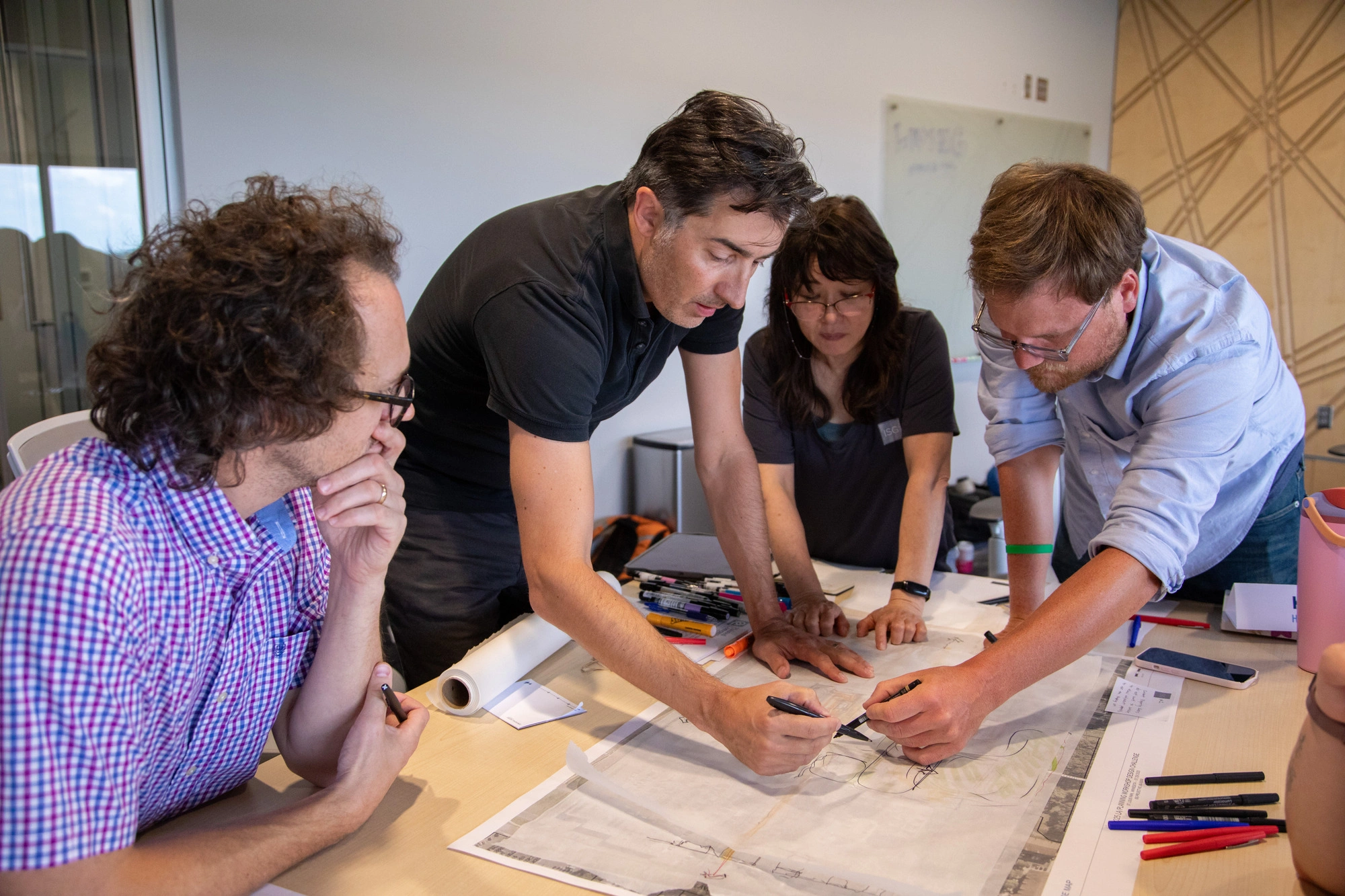10 Ways to Build Your Professional Capital in 2017

Competition is great. It fuels the A/E industry, motivates firm leaders, and empowers employees across organizations. With the new year only three weeks behind us, there’s no better time than now to restock the professional tool box with tips and tricks to help increase productivity, spark creativity, and maximize both firm and individual performance.
1. DREAM
Productivity and training masters Dale Carnegie have inspired ISG and many others with their DREAM action plan to help establish team or individual goals. Think SMART, but only smarter.
- D- Demonstrable: Can the success of your goal be objectively measured?
- R- Resourced: Do you have the finances, manpower, time, or talent right now to achieve your goal? Do you have an efficient means to acquire those resources?
- E- Embraced: Do the people around you agree with and support your goal?
- A- Aligned: Does your goal align with greater goals for the firm? (See the next tip for more on this).
- M- Memorable: How can you make your goals known to those around you or constantly reflected in your everyday work?
2. Align and Balance Goals
To truly make a positive impact, your individual goals should align with the overall goals of your employer.
Does what I’m doing now support the goals of this project, and do those in turn support the firm’s goals in addition to my own professional aspirations?
By asking these questions, you will constantly be in tune to bigger picture needs for both yourself and the firm. While every task may not leave you jumping for joy that you’ve made it in your career, the majority of your time should be balanced in terms of professional goals and those needed for your firm to succeed (aka positive contributions).
3. Join the Clean Plate Club
Don’t pack up and run out at the end of each day. Doing a quick recap will help you hit the ground running the next morning. Then, allow yourself 15-30 minutes when you return the next morning to map out your day and assess the most important priorities. Nothing says “disaster day” more than starting out frazzled and trying to recap the previous days work.
4. “Do Or Do Not. There is No Try.”
To take a liberal approach to Yoda’s signature phrase, there is no strategy or planning behind the “I’ll tackle it tomorrow” mindset. Set a hard time limit on when each daily project will be tackled, how long it will take to brainstorm and prepare for the job, resources and expertise needed, and how much time is needed to actually complete the task. Of course, there should be flexibility within this structure but if you don’t have reasonable milestone goals, you may set yourself up for unrealistic results.
5. Be Aware of Pesky Pavlov
The incessant “ping” and messages that pop up throughout the day can be serious productivity killers.
Being responsive is important, but so is staying focused.
Try not to over-engage in emails, IMs, text messages, or whatever form of digital communication your work place encourages. Set specified times during the day to check and respond to your most important messages. Something that can’t wait? Send a quick “got your message; will respond at the top of the hour” to keep teammates in stride while remaining responsive.
6. Eat Your Biggest Frog First
Doing so will make you feel accomplished and eliminate the biggest storm cloud looming overhead for the day. Not to mention, leaving a large project for last runs the risk of underestimating the time needed to get it completed. Then, you can start to cross off less important and basic tasks AFTER you’ve exhausted precious brain power.
7. Understand Your Strengths and Acknowledge Your Weaknesses
Nobody’s perfect. We all have areas that need improvement, and failing to recognize these shortcomings can limit abilities to capitalize on your greatest strengths. Not great at retaining information from conference calls? Look up better note-taking techniques. Making the same silly typo or formatting mistakes again and again? Make a personal list of “friendly reminders” and check them before you submit any work. On the flip side, are you a strategic thinker that is constantly mind mapping in your head? Then capitalize on that strength and use software or other solutions to share that web of greatness in your noggin with those in the living world.
8. Ditch the Detailed Post-It Notes
Stop – I repeat, STOP – writing important information on post-it notes. Sure, the mess of yellow, blue, and pink on your desk might make perfect sense to you, but what happens if you get pulled from a project to focus on an urgent client issue? Are you able to quickly package up your notes for hand off to another teammate and ensure the project keeps moving? Chances are, no. Stick to a consolidated folder or electronic method of note taking. Not only will this help should challenges arise, but it will also eliminate the chance that you write down an important task only to forget about the yellow square after it gets lost under other papers and notepads. Leave the post-it notes for reminders about your lunch bag or happy hour.
9. Make Professional Development a Priority
Take time to attend conferences, participate in webinars, or research a popular topic in the industry. This will help you continue to build your professional brand and gain a competitive edge in your field of interest. High-five for even reading this blog post as doing so is absolutely a form of professional development. Make time to find a professional digital (or gasp, hard copy) newspaper that you review daily to stay inspired, informed, and invigorated.
10. Don’t Let Perfect Be the Enemy of Good
To emphasize my point, I could leave this 10th spot on the list empty and call a list of 9 well-enough. But I won’t, because this point is important. While many high-achieving people are in fact perfectionists, the idea of a “perfect” anything is entirely subjective.
As popular TED speaker Gretchen Rubin has said, “many things worth doing are worth doing badly.”
Embrace a process of gradual growth – and stop looking for the perfect unicorn of success. Strive for success, but embrace the process. It requires constant work and attention, but will yield positive results. Now go wow clients with amazing projects and tackle 2017 like a champ!
Join the Conversation #ProfessionalToolBox #Creativity #ISGIngenuityAtWork
DREAM content provided by Dale Carnegie, all rights reserved by Dale Carnegie.
Related Articles

.webp)
ISG Recognized as a 2025–26 Emerging Professional Friendly Firm for the Fourth Consecutive Cycle
ISG has been honored as a 2025–26 Emerging Professional Friendly Firm by AIA chapters in North Dakota, South Dakota, Wisconsin, and Minnesota in recognition of its commitment to fair compensation, licensure support, mentorship, and growth for early-career architects.













